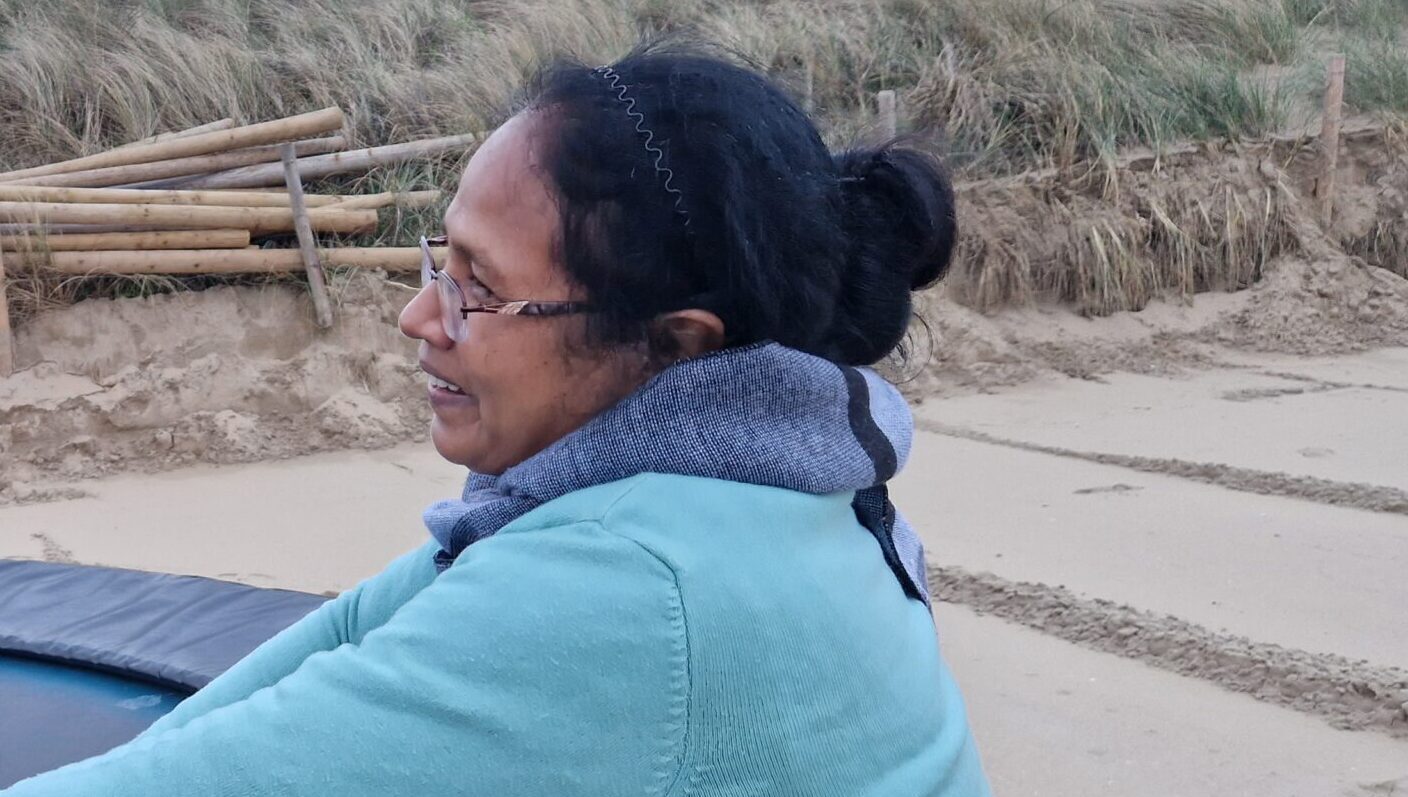Sister Saroj is director of The Fakirana Sisters’ Society (FSS). FSS seeks to rescue and rehabilitate children living in slavery and help families to escape debt bondage and lead a life of freedom and dignity. In its Freedom Fund project, FSS works in 11 villages in one district of Bihar, seeking to reduce the prevalence of slavery through the provision of education and livelihood assistance, as well as support to Community Vigilance Committees.
”The social work we do with the Fakirana Sisters Society focuses mainly on education and health and safety for children and women. Before we were engaged with Work: No Child’s Business, we already worked to prevent child marriages, human trafficking of children and women, and child labour, and to get children into school. WNCB has provided us with more opportunities to work with grassroots people on these issues.
Mobilisers are the key people in the work we do; they are our helpers and our heart at the same time. Without them, we cannot reach people and children in communities in the same way as we do now. Through them, we can address the core issues at play for families and children, in villages and in whole areas. I have great trust in mobilisers and great respect for them. They are the ones that locate all the children. They know where the dropout children are. They know where the children work in child labour. With help of the parents and peer groups such as womens’ and mens’ groups, they locate the children to get them out of work and into school.”
How people become mobilisers
”There are many good people and resources in the villages. There are many ways in which people from the community become mobilisers for FSS. Some of them got in touch with us by informing us about which children in their village did not go to school. Especially women in villages are very aware of all that is happening in their communities. They keep track of the children and inform us and our mobilisers about what they see and know. Most often, long before they join FSS to become a mobiliser, they already have a vision for their communities and for the children in their communities. It is because of their intrinsic motivation and vision that they join FSS”.
Organising the programme
”Every month, we make a planning with the programme coordinator, mobilisers, block coordinator, with me, and with our whole team for the work that needs to be done. At the end of the month, we get together to evaluate the work. We discuss what we need to do, what the challenges are and how we can face these challenges. Sometimes, we also discuss certain challenges and how to overcome them with the community leader. We then decide together how to organise our activities to overcome these challenges. We also involve other groups in our planning, such as media groups and the primary teachers’ federation. The latter is especially important for the retention of children in schools. Teachers and school headmasters complain when we want to enrol children in school that don’t attend classes and even drop-out. A broad collaboration ensures can prevent this from happening.”
Child Labour
”Here in Bihar, we have to deal with many challenges when we try to locate the children. For example, in brick laying, children are trained in such a way that they hide when mobilisers go to the brick laying sites. When children are found in the workplace, they will say they are not working and just came ‘to see the work’. The brick laying owners do not want us to find the children and get them out of work. Interfering in their work is therefore a risk.
Livelihood programmes
In the areas where FSS operates, a lot of parents are involved in beedi rolling for work and their children are engaged in this work too. A lot of this is homework, the parents receive the materials for beedi rolling so they can do it at home. This makes it easier for children to join in the work. FSS mobilisers try to sensitise people in these areas by doing interventions. These include our activities and meetings, and by connecting with the parents, children, peer groups and other stakeholders. We also involve parents in different livelihood programmes that offer opportunities in, for example, agriculture. Ultimately, the parents and others in the community need to be motivated to let children go to school.”
Successes
”Of course, there are still challenges. There will always be challenges. But at least, when I see the children that we have reached, I can tell that they have grown a lot. There is a large number of children that we have promoted and are now enrolled in school, through mobilising and sensitising the parents and others in the community. To ensure retention, we have a bridge course programme. This is important for the school retention and for the children’s confidence and self-image.”

